The colors, the festivities, the rituals and the food make marriage ceremonies in India extra special and truly something that people look forward to. The experience is made more eclectic and vibrant by the different types of marriages in Indian states based on the culture of each region. People come from all over the world to witness Indian weddings and thrive in the rituals and the fun of it all. What makes Indian marriage ceremonies so special is the sheer diversity they exhibit.
The rituals followed in the northern part of India are not the same as in the southern part of India. The East has entirely different kinds of weddings as compared to the West. There are different types of marriages in India and it’s this multiplicity that dazzles us about our country.
History Of Marriages In India
Table of Contents
A discussion about how many types of marriages in India cannot be complete without delving into the history of marriage in India. India is a country that traditionally followed the culture of arranged marriages, a practice that is followed to date in every Indian community, irrespective of religion, caste and class.
In the olden days, two families would decide on the match and usually, couples were married in their adolescence because it was believed that it would be more suitable for emotional adjustment. For example, Mohandas Karamchand Gandhi was married to Kasturba Gandhi at the age of 13 and they spent 62 years of their life as man and wife. These stories are all too common in India.
The custom of child marriage was not prevalent in ancient India although it started later on when there were foreign invasions and gradually got worse as patriarchy started raising its ugly head. In fact, in India, kings even arranged Swayamvaras for their daughters so that they could choose from the best to marry, thus supposedly allowing a woman the choice from a long line of men.
Writer Chitra Banerjee Divakaruni makes it apparent in her book The Palace of Illusions that Draupadi was actually in love with Karna and if she had her choice she would have garlanded him. But she was forced to tell him that he was not a Kshatriya and he could not take part in the Swayamvar because she had to serve her destiny which was with the five Pandavas.
Polyandry, as shown through Draupadi’s marriage, existed in India but polygamy was more common, with men, mostly from Hindu and Islam religions, having more than one wife. Monogamy gradually became the norm in India and the country became more open to the concept of love marriages although arranged marriage still continues to be the more popular choice. All types of marriages that we mentioned earlier are usually elaborate affairs, except perhaps a court marriage.
Related Reading: 21 Miraculous Prayers For Marriage Restoration
Different Types Of Marriages In Indian States
What is fascinating is that India has 28 states and 9 union territories and the marriage ceremony differs in every single state. If we try to get into the nitty-gritty of marriage rituals and the different types of marriages in India state across the peninsula in 37 places, then we would end up writing nothing short of a thesis here.
But it is pertinent to say here that the diversity of marriage ceremonies lends India its essence, especially if it is an inter-faith marriage. Well then, that is some experience for it provides us with a combination of ceremonies. The ceremonies might be different but the marriage laws followed are the same.
Marriages are registered and granted legal sanction under the provisions of the Hindu Marriage Act, 1955, The Special Marriage Act, 1954, the Muslim Personal Law or The Indian Christian Marriage Act, 1872. No matter which state the marriage is taking place or what rituals are followed, the marriage has to be registered according to the law of the land.
How Many Types Of Marriages Are There In India?
So how many types of marriages in India, then? It’s hard to exactly pinpoint the entire gamut of marriage rituals in India. Because within the purview of the Hindu marriage itself, the diversity is immense. Needless to say, different types of marriage customs are followed in India depending on the culture and practices.
A Bengali wedding is not similar to a South Indian or a Maharashtrian wedding despite all of them being Hindu weddings. The religion followed might be the same, the mantras chanted even similar but the rituals, time of wedding and attire are all very different.
If we are asking the question of how many types of wedding in our country, then at the basic level we can say that there are nine types of marriages in India. When focusing on how many types of marriages in India, we will get into the details of how each type of marriage is solemnized. Here are the different ways in which people get married in India:
Related Reading: Life After The Wedding And The Honeymoon – Post Marriage Life
1. Hindu marriage
The Hindu marriage ceremony follows the Vedic rituals and the three main rituals of Kanyadaan, Panigrahana and Saptapadi are followed. The first means the father of the bride giving her away, the second means joining hands of the bride and the groom in front of the fire and the third is making seven rounds around the fire.
But not all rituals are followed in every Hindu wedding. For example, different communities in Kerala and Tamil Nadu do not have the system of lighting a fire and their weddings usually start off early in the morning and the ceremonies wrap up by noon. In Bengal, some ceremonies like gaye holud (turmeric ceremony is done in the morning) but the main wedding ceremony takes place later in the evening.
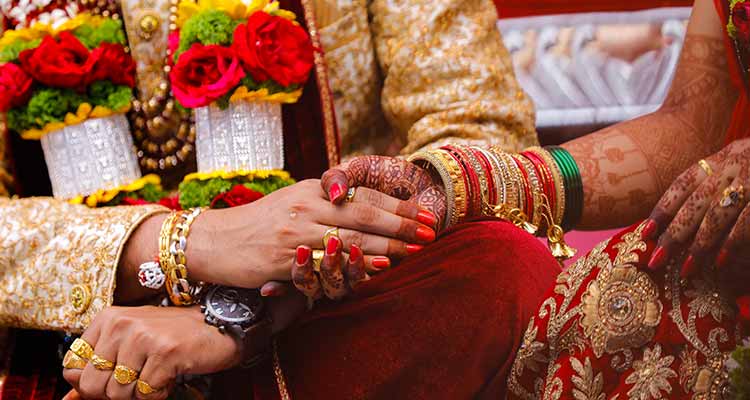
North India witnesses the most elaborate wedding ceremonies that take off with the sagai (engagement) and the wedding can go on for days when garlands are exchanged, a havan is done and the bride is finally made to wear the mangal sutra. In East India, it is the application of vermillion that is more significant and in Maharashtra and much stress is laid on the Lakshmi Narayan Puja. All marriages between two people of the Hindi faith are registered under the Hindu Marriage Act, 1955 or the Special Marriage Act, 1954.
2. Christian marriage
Christian weddings are also important in the history of marriage in India and are still widely practiced around the country. Under the Indian Christian Marriage Act, 1872, Christian marriages are performed by a minister or a priest in a church. The beauty of Christian marriage in India is that a bride often chooses to wear the attire of the community she belongs to instead of opting for a gown.
So Christian marriages in India see the bride in traditional attires like sarees, mekhlas and traditional sarongs and even the groom often opts for traditional attire along with his best men. Remember, different ways in which people get married don’t mean that there are different types of love! The love, happiness and cheer are all the same across all wedding ceremonies.
Among the types of marriages in India, it is a Christian marriage that is a happy amalgam of Indian and Western cultures. The tradition of the feast, the toast and the bouquet are all followed sprinkled with some lovely traditions.
3. Sikh marriage
Out of the different ways of getting married in India, this is another popular one. Earlier on, Sikh marriages were registered under the Hindu Marriage Act but now these are registered under the Punjab Sikh Anand Karaj Marriage Act 2018. The Sikh wedding ceremony is usually very simple. It takes place at the Gurudwara, which is the place of worship for the Sikh community.
But before that, a ceremony takes place which is called milni where the families of the bride and the groom meet and interact with one another. On the wedding day, then four simple stanzas are recited from their holy text and the bride and groom take pheras around Guru Granth Sahib (holy scripture). The bride and the groom also wear elaborate traditional attire and some really amazing food is served at the festivities.
Related Reading: How To Write Wedding Vows (And What You Should Never Write)
4. Muslim marriage
How many types of weddings can India really boast of? Well, there are a few more to go. A Muslim marriage comes under the purview of the Muslim Personal Law (Shariat) Application Act, 1937. Islamic traditions are followed in a Muslim marriage in India. The bride and the groom could opt for Indian traditional attire but the religious ceremony usually strictly adheres to Islamic rules. The wedding ceremony called the Nikah is solemnized by the maulvi, a type of priest.
There is also the process of Kanydan in a Muslim wedding too followed by the reading of the Quran and the groom’s proposal and the bride’s acceptance. Indian Muslims usually serve biryani at their weddings, which is probably the most popular thing about such a wedding.
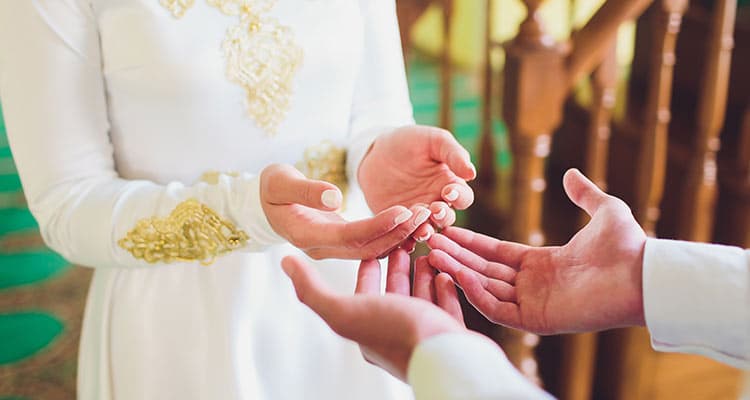
5. Parsi marriage
Parsi Marriage and Divorce Act of 1936 is the law under which Parsi marriages are solemnized and registered. Some of the ceremonies followed in a Parsi marriage are an exchange of silver coins between the families of the bride and the groom. It is after this ceremony the wife takes the name of the husband.
The ceremonies are carried on for three days prior to the wedding, and on the fourth day, a wedding procession arrives at the bride’s house where the marriage is solemnized. After the wedding, a couple has to have food from the same dish as a cute, romantic gesture symbolizing their union.
6. Buddhist marriage
Among the types of marriages in India, a Buddhist marriage is probably the most simple one. A Buddhist marriage is also registered under the Special Marriage Act, 1954. There are no strictly put down rituals to be followed and no elaborate ceremonies in a Buddhist marriage.
The Buddhist marriage, true to its religious teachings, emphasizes spirituality and strict adherence to the vows. There is usually an engagement solemnized by a monk or Rinpoche. On the wedding day, the bride and the groom with their respective families visit the temple, and then, the wedding ceremony is carried out at a separate location. A Buddhist wedding is usually a small affair where few friends and relatives are invited.
7. Jain marriage
Buddhists and Jain can either register their marriage through the Hindu Marriage Act 1955 or through the Special Marriage Act 1954. These are two types of marriage acts that can be used by people of different religions before they start a new life with their prospective life partners.
Jain marriages have many rituals that are similar to Hindu marriages like pheras or kanyavaran but a number of Pujas and aarti are performed at a Jain marriage. The most important ritual is after the wedding the bride and groom go with their family members to a Jain Temple and feed the poor there. Out of the different types of marriages in India, this is perhaps the most generous one.
8. Court marriage
Inter-caste and inter-faith marriages also take place in India, more than you know. Many people who want to avoid the religious rituals in such a case opt for a simple court marriage under the Special Marriage Act 1954. The registrar is given a 30-day notice with the residential and birth details of the bride and groom.
Then, on the day fixed, they have to be present at the registrar’s office with three witnesses to sign on the legal documents and read their marriage vows to one another. Just because it’s not a big bash, doesn’t mean that the two folks aren’t deeply in love! Out of the different ways in which people get married, this is the least pompous one.
Related Reading: Court Marriage or Arya Samaj Marriage? Here’s What You Should Know
9. Mixed marriages
There are so many different types of marriages in Indian states reflecting the essence of that very state in the marriage. But here’s something a little different. In the case of inter-faith marriages, many brides and grooms follow the rituals of both faiths to solemnize the marriage.
These marriages come under the Special Marriage Act 1954 but it is common to see the wedding being solemnized following the rituals of both families, in separate ceremonies. So, you may have a church wedding taking place in the morning followed by a Hindu-like havan in the evening. These mixed marriages are often a mix of culture, rituals, traditions and festivities!
In a place like India with such diverse traditions, it is inevitable there would be too many mind-boggling rituals and traditional ceremonies when it comes to marriage. But there are mainly nine types of marriages that are largely solemnized in modern India, about which we just now wrote at length.
12 Struggles You Will Go Through if You Are Single During the Indian Wedding Season
Your contribution does not constitute a charitable donation. It will allow Bonobology to continue bringing you new and up-to-date information in our pursuit of helping anyone in the world to learn how to do anything.

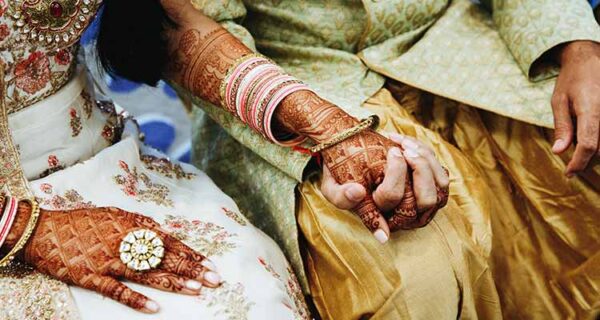





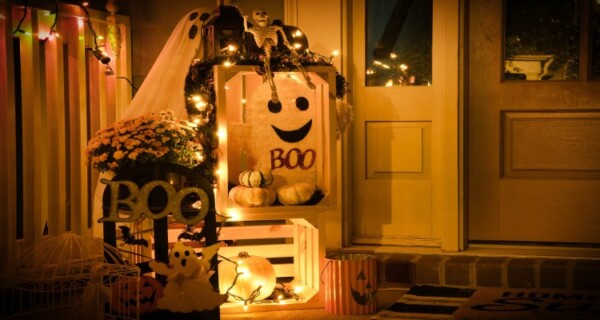










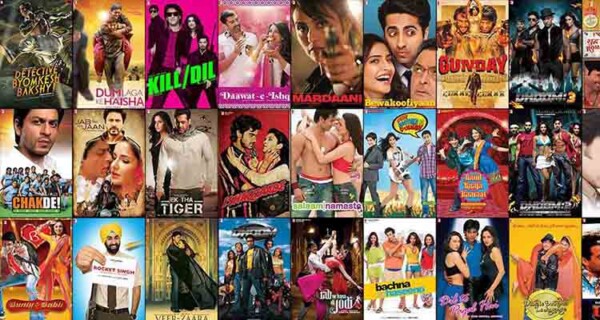




Featured
Best Sunscreen For Your Face
Best Serum For Aging Skin
Best Dark Spot Remover For Face
Why A Cheater Will Cheat Again?
50 Best Halloween Costumes For Couples
How An Eco-friendly Lifestyle Can Spice Up Your Dating Life
Dating A Girl Who Loves Tequila: 5 Things To Know
6 Reasons Why Chocolate Makes Relationships Sweeter
Why The ‘Modern Love’ TV Series Is Like A Soothing Balm For The Soul
21 Tips For A Better Work-Life Balance For Women
11 Best Cavitation Machines To Get In Shape This Year | 2022
Is It Safe To Buy Jewellery Online?
How To Have A Non-Religious Wedding – Some Awesome Tips!
How To Be A Happy Woman? We Tell You 10 Ways!
12 Signs Of Insecure Women And How To Deal With Them
15 Heart Touching Dialogues From Bollywood Movies
World Emoji Day: Everything About The Emojis
Kabir Singh Is The Man I would Want To Fall In Love With
10 Reasons I Am Proud To Be A Curvy Girl
Happy Father’s Day: Tips For How To Be A Good Father